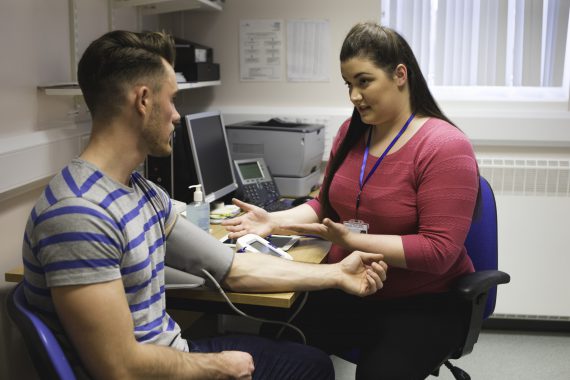NHS England is extending the Time for Care programme, after reporting that it has saved nearly £40m worth ofGP appointment time
First introduced in 2016 as part of the GP Forward View, the three-year programme was designed to encourage GP practices to adopt and share innovative ideas that release time and work. These include a better use of social prescribing, active signposting and new consultation types, among others.
To date, it has freed up 205,157 clinical hours – the equivalent of 1.23 million GP appointments of 10 minutes each and £40 million in time saved – and 330,096 administration hours over the last year, according to NHS England.
Following success in pilot sites, NHS England said the programme will now be rolled out across the country, with the aim to cover three-quarters of GP practices by 2022.
NHS England medical director for primary care Dr Nikita Kanani said: ‘This programme has had significant benefits for patients and GPs alike, freeing up doctors’ time and NHS resources to ensure people get the care they need as quickly as possible, as part of our long term plan for the health service.
‘GP services will continue to be at the heart of our health service, and it makes sense to invest for another three years in a programme that is delivering so much for patients while helping us to be more efficient.’
RCGP chair Professor Helen Stokes-Lampard said: ‘NHS England’s evaluation of the Time for Care programme suggests it is making a real difference to some GP practices, and it is reassuring to know that NHS England are listening to our concerns about GP workload and taking action to help tackle this.
‘However, most of our hard-working, hard-pressed GPs will still tell a different story of working longer and longer hours and seeing more patients per day to try and cope with demand, which continues to increase in both volume and complexity.
‘The impact of Time for Care has to be seen as just one part of a much bigger solution that is needed, in the overall context of GP shortages and long-term underfunding of primary care. The investment announced in the recent NHS long-term plan and GP contract framework will take time to be felt on the ground.’
She added: ‘We are pleased to have more trainees in general practice than ever before, but this trend must be sustained and built upon, as well as continued urgent action to boost the GP workforce in the short-term. It is essential that the forthcoming workforce implementation plan launches effective strategies to boost the pipeline of GPs, protects and supports those who are struggling, and has robust solutions to expand the wider practice team – and that all this is properly funded.’
Pulse October survey
Take our July 2025 survey to potentially win £1.000 worth of tokens





 Oviva’s fully remote Tier 3 Weight Management programme
Oviva’s fully remote Tier 3 Weight Management programme







